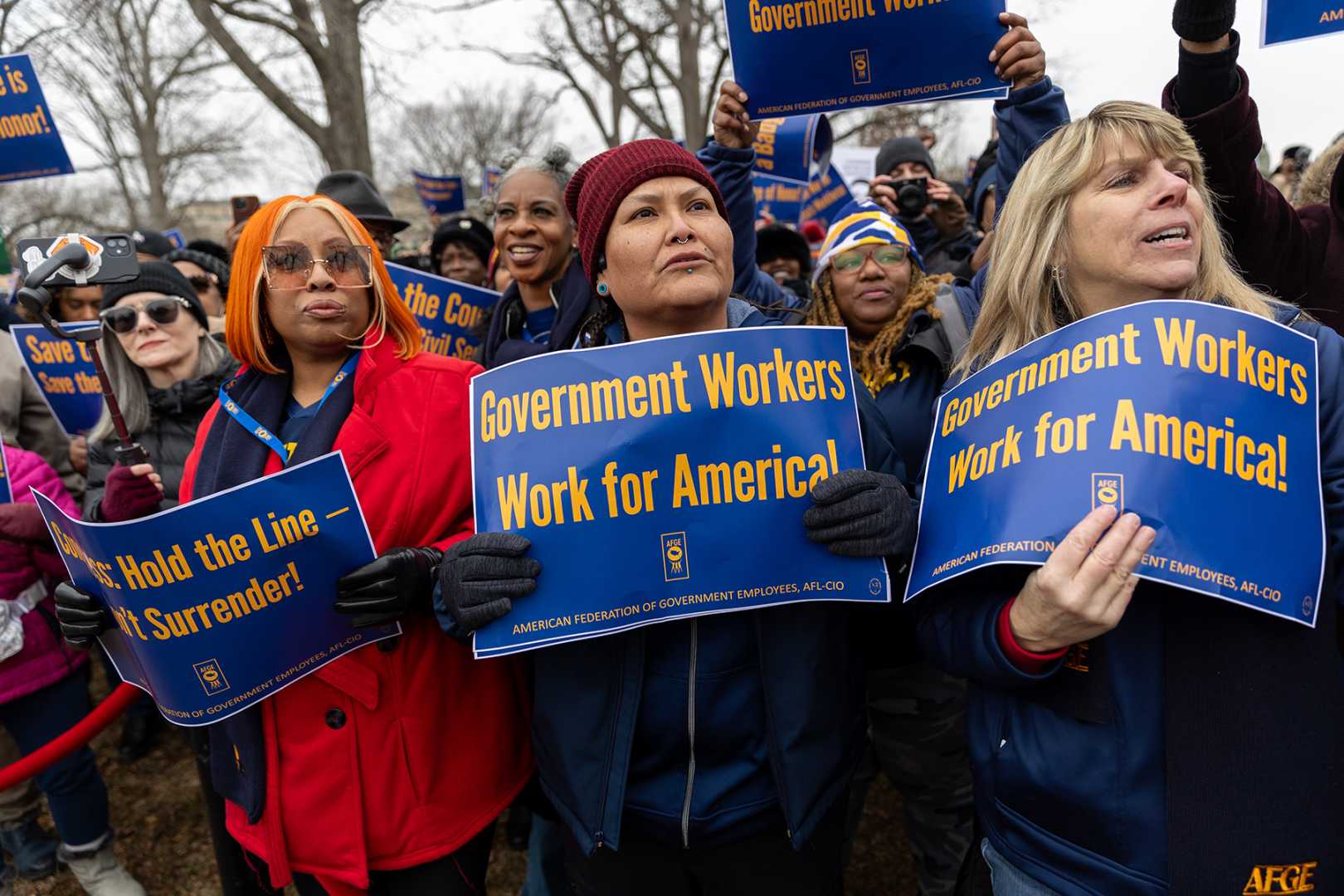Politics
Federal Employee Unions Face Challenges Amid Trump’s Labor Policy Revisions

WASHINGTON, D.C. — Federal employee unions are struggling to maintain their rights and influence as the Trump administration pushes for significant changes to labor regulations that could impact a large portion of the workforce. In March, union leaders were blindsided by mass layoffs at the Food and Drug Administration without the required advance notice, raising concerns over governmental transparency and workers’ rights.
Anthony Lee, president of NTEU Chapter 282, which represents around 9,000 FDA employees, expressed frustration about the abrupt layoffs. He stated, “Basically we’ve been ignored,” reflecting on the lack of consultation regarding a terminated telework agreement. Lee continued, “Even our ability to exist in the federal workplace — to be able to represent employees — is threatened by this administration.”
Trump’s administration plans to cut federal jobs and has already limited collective bargaining rights for many federal workers. An executive order recently issued by Trump extends beyond agencies with national security reasons, affecting organizations such as the Environmental Protection Agency and the Department of Veterans Affairs.
Despite a federal judge issuing an injunction against this order, the Trump administration is appealing the decision. The President has argued such regulations hinder his management capabilities. Nicholas Handler, a law professor, notes that collective bargaining serves as a check on presidential power, allowing unions to negotiate essential workplace conditions and protections.
Historically, federal employees lacked union rights. However, during labor shortages in the 1960s, the federal government sought to attract talented workers through stability and protections, leading to the introduction of union rights under President John F. Kennedy. The Civil Service Reform Act of 1978 later secured these rights, stating they contribute to effective public business.
Trump’s recent claims about union obstructiveness are concerning for many union leaders. Lee expressed his fear that political pressure could compromise essential scientific work at the FDA. “It remains to be seen whether or not they’re going to allow employees to do the job that the public expects,” he said.
Union leaders like Armando Rosario-Lebron from the National Association of Agriculture Employees argue that unions actually promote efficiency within government agencies. He highlighted how the union assists in managing overtime needs among employees tasked with preventing invasive species in agriculture. “I know that a lot of managers love that,” he stated, suggesting the union provides valuable support that could be lost without collective bargaining.












